Cart totals
| Subtotal | €8.26 |
|---|---|
| Shipping |
Shipping options will be updated during checkout. |
| Total | €41.26 |
| Subtotal | €8.26 |
|---|---|
| Shipping |
Shipping options will be updated during checkout. |
| Total | €41.26 |

Strange how many déjà vus you have here.
How might we conceive of comradeship with a present that is increasingly predetermined by algorithms and governed by techno-politics? Armen Avanessian chronicles his stay in Miami as an experiment in writing about our times of individual optimization and digitization. An inventory of the self in the second person—and a philosopher’s reflections in the infinity pool of the art world—this book reckons with a new time complex as well as the aesthetics and infrastructures of the contemporary. Can we advance from conditions of financial feudalism and climate change to a progressive poetics of the digital? The city of tropical noir becomes a case study for a geopolitics and economics of the future—Miami vision, Miami vacation, Miami fiction, Miamification.
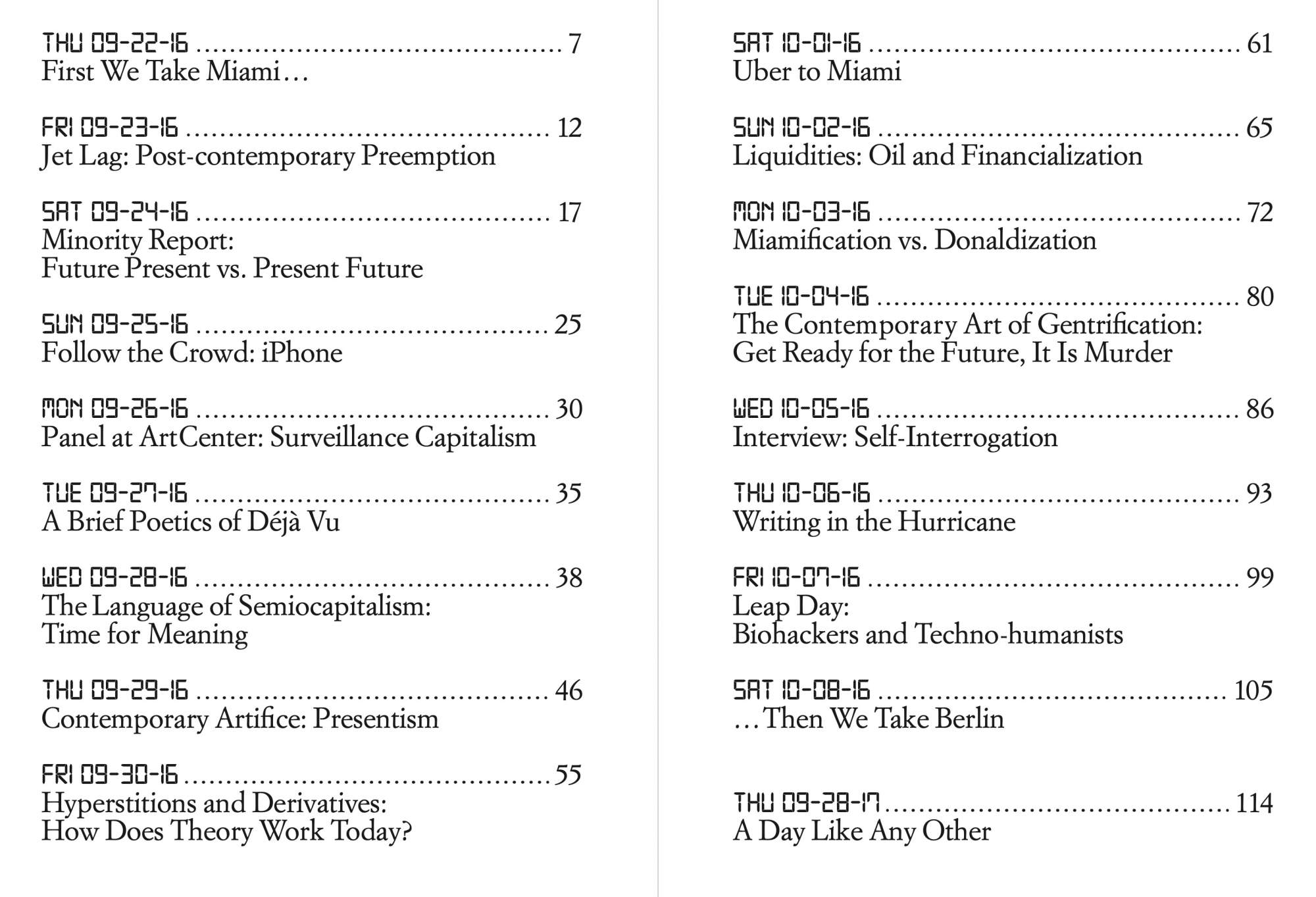
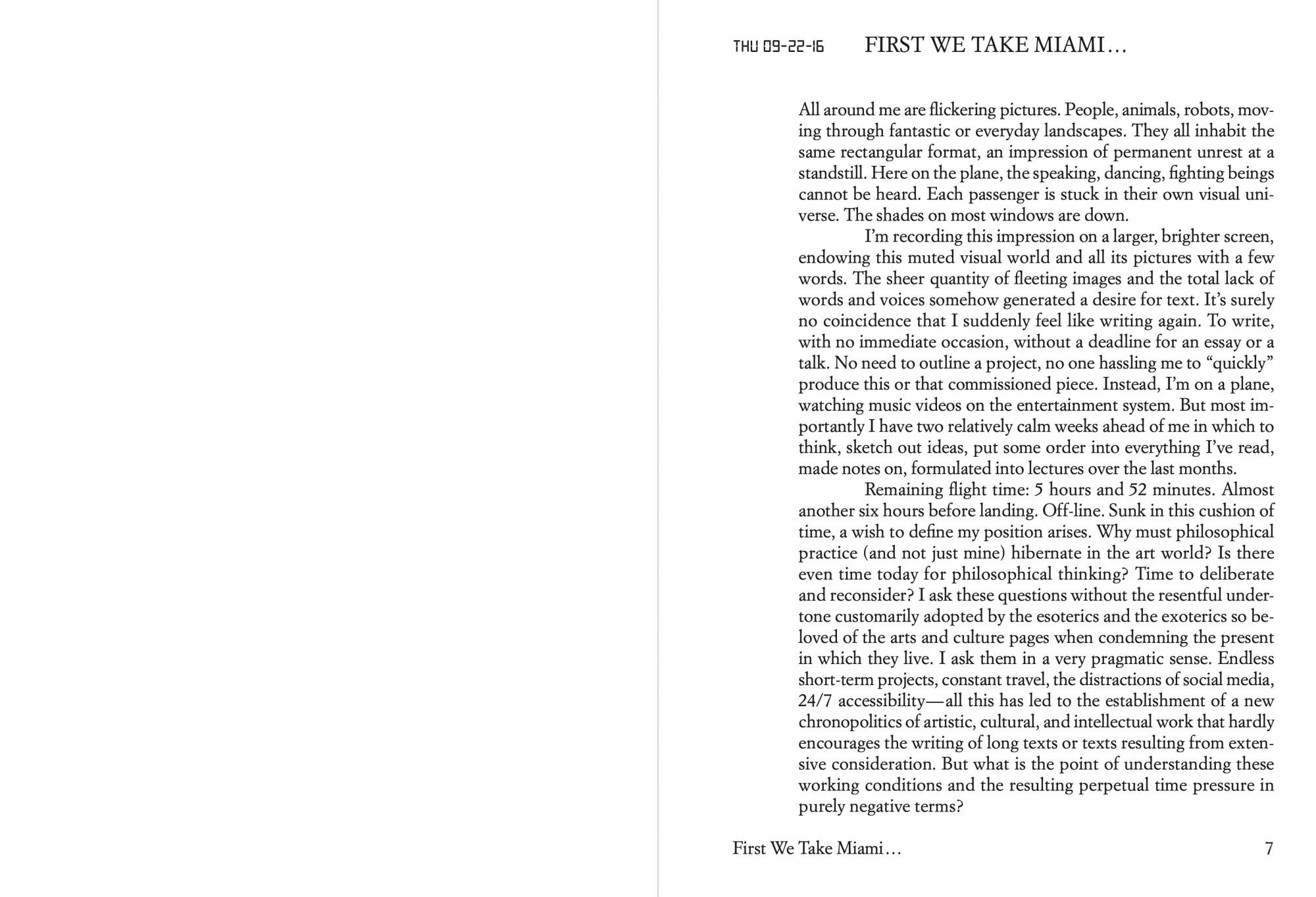
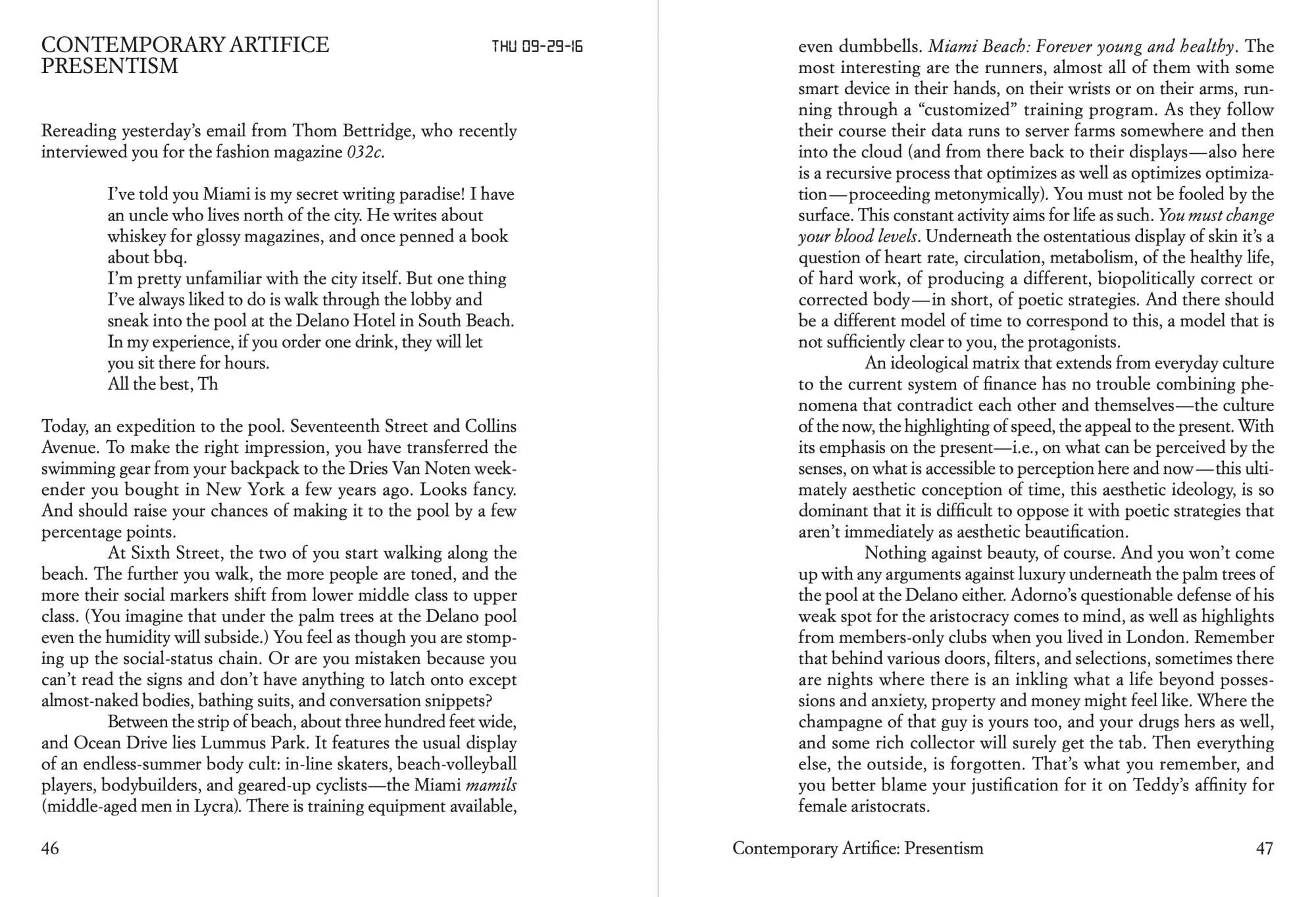
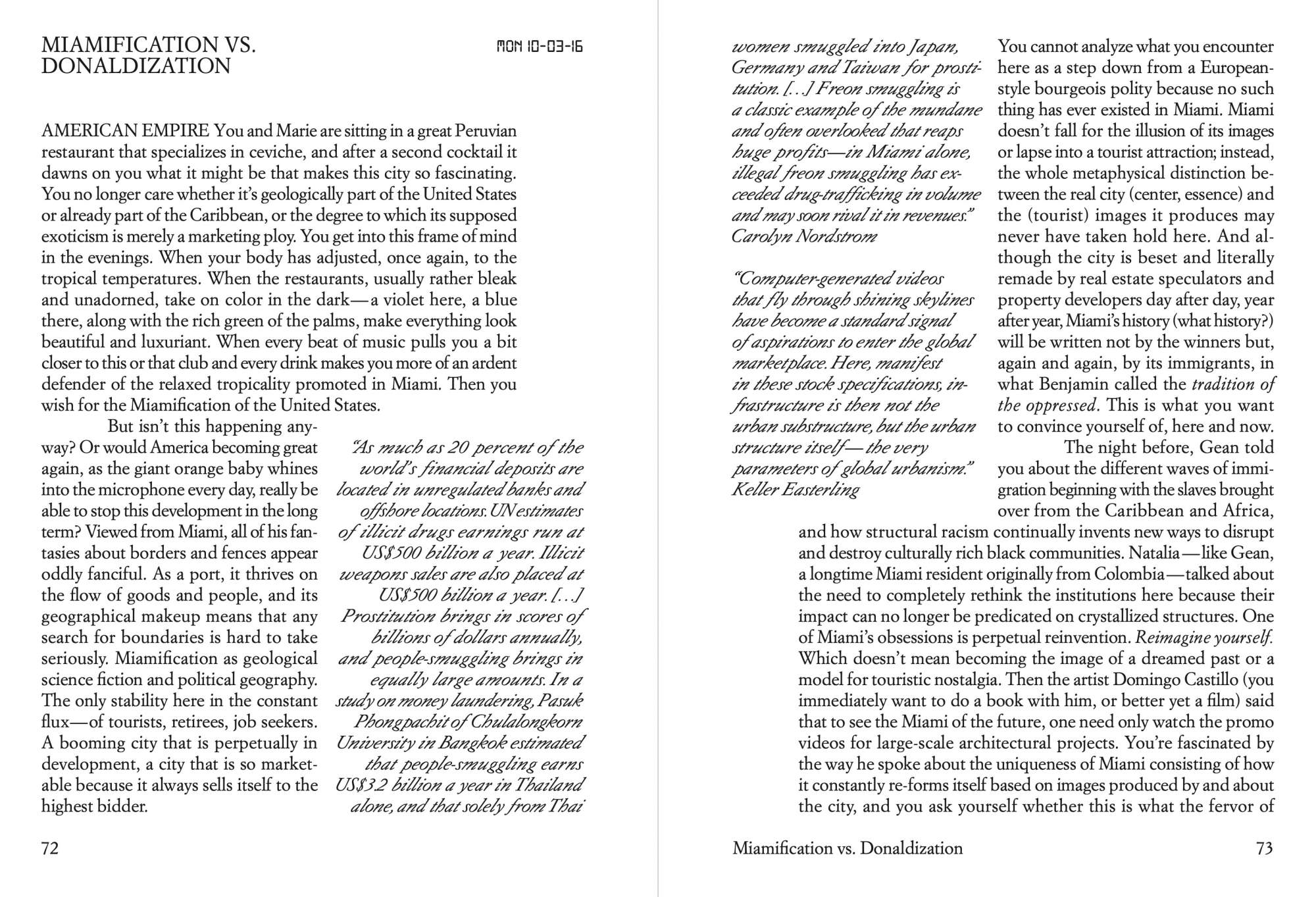
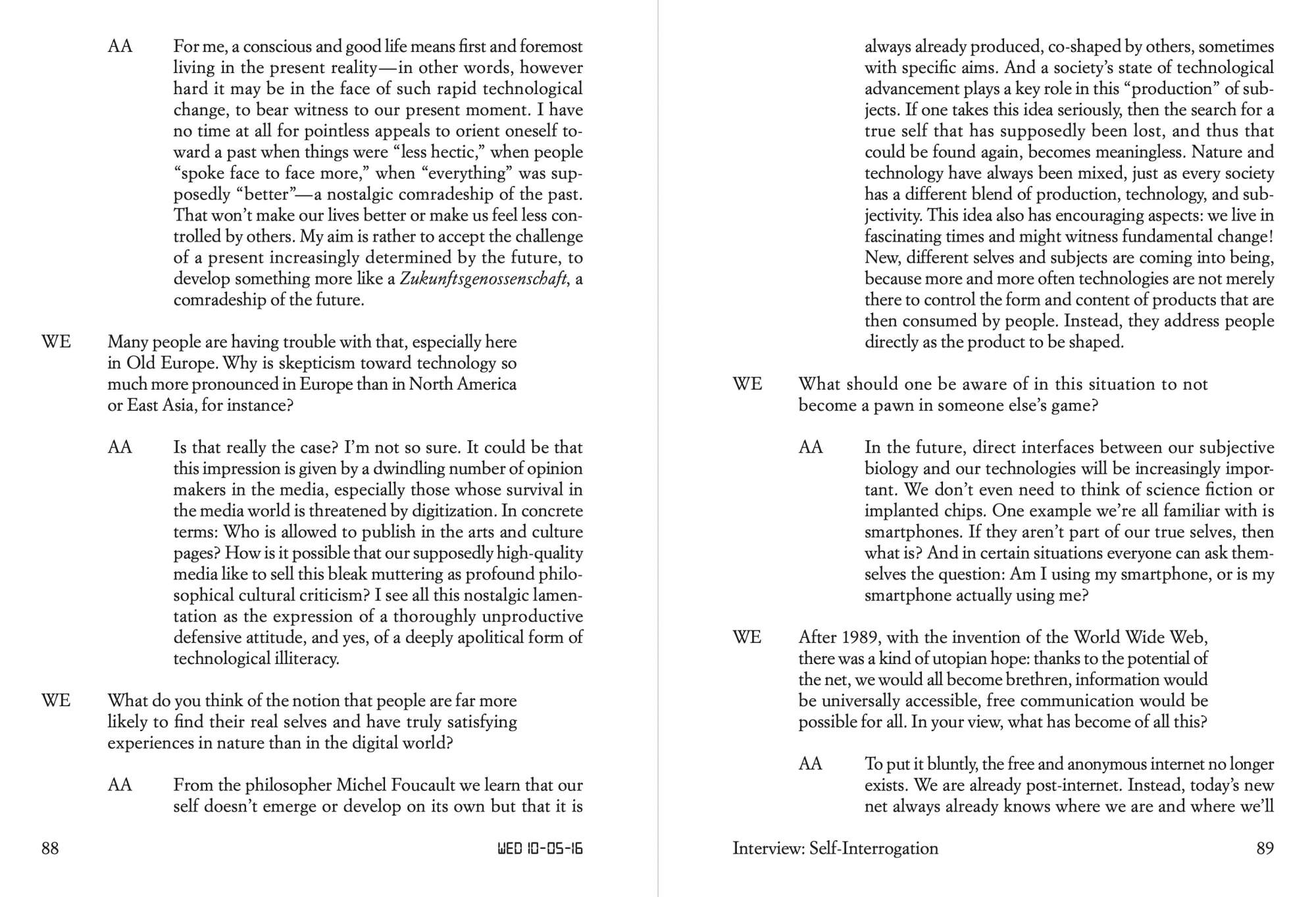
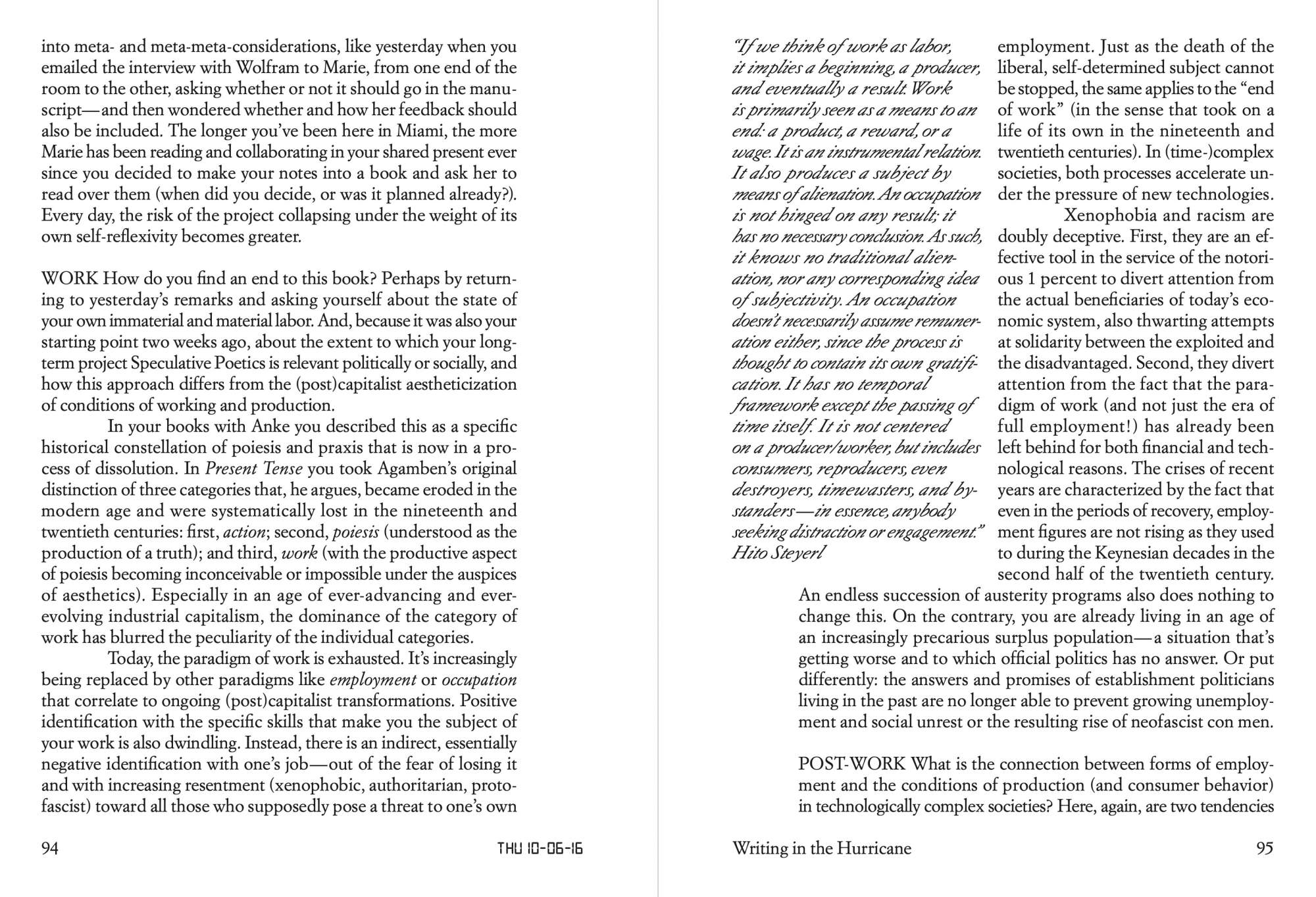
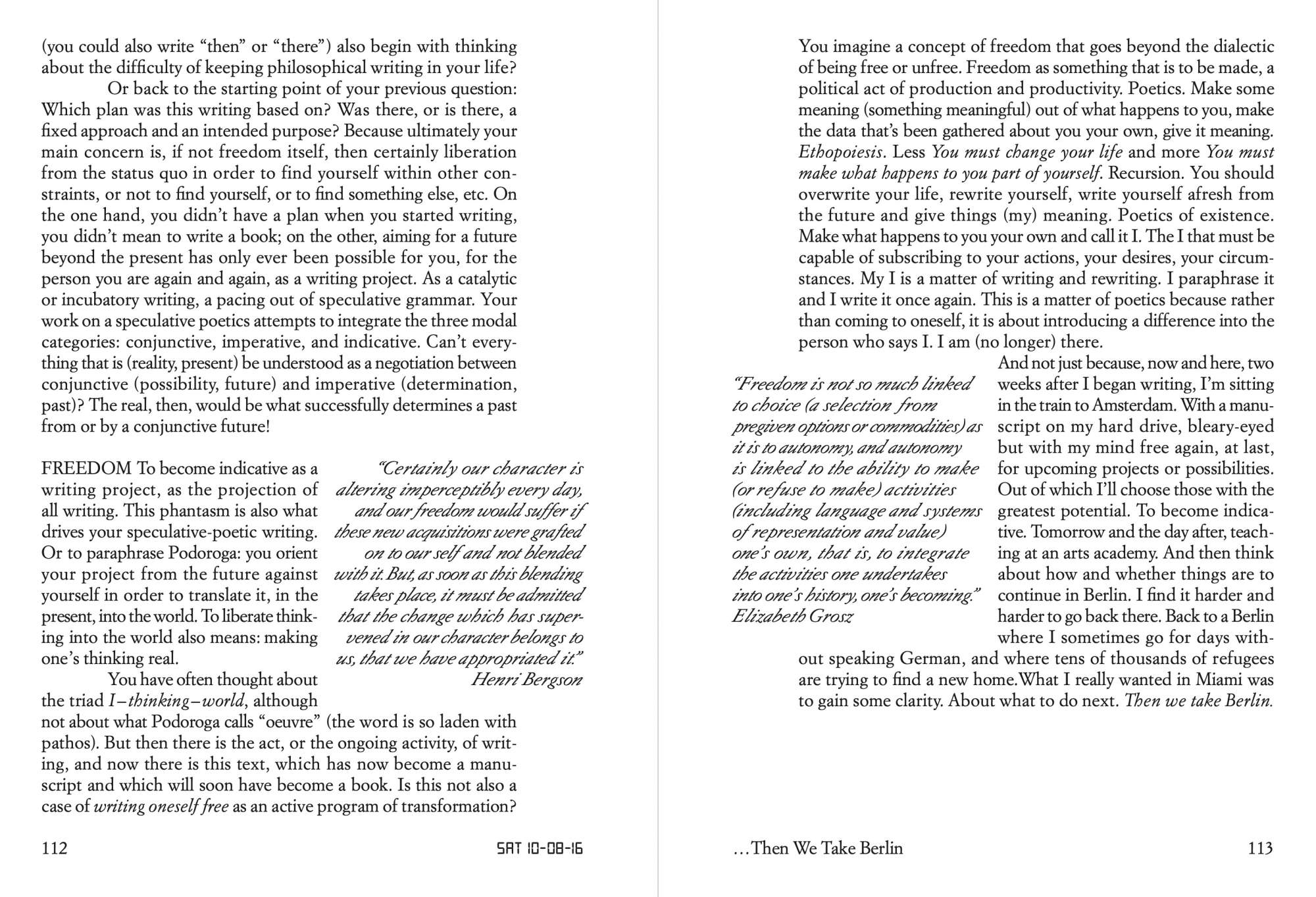
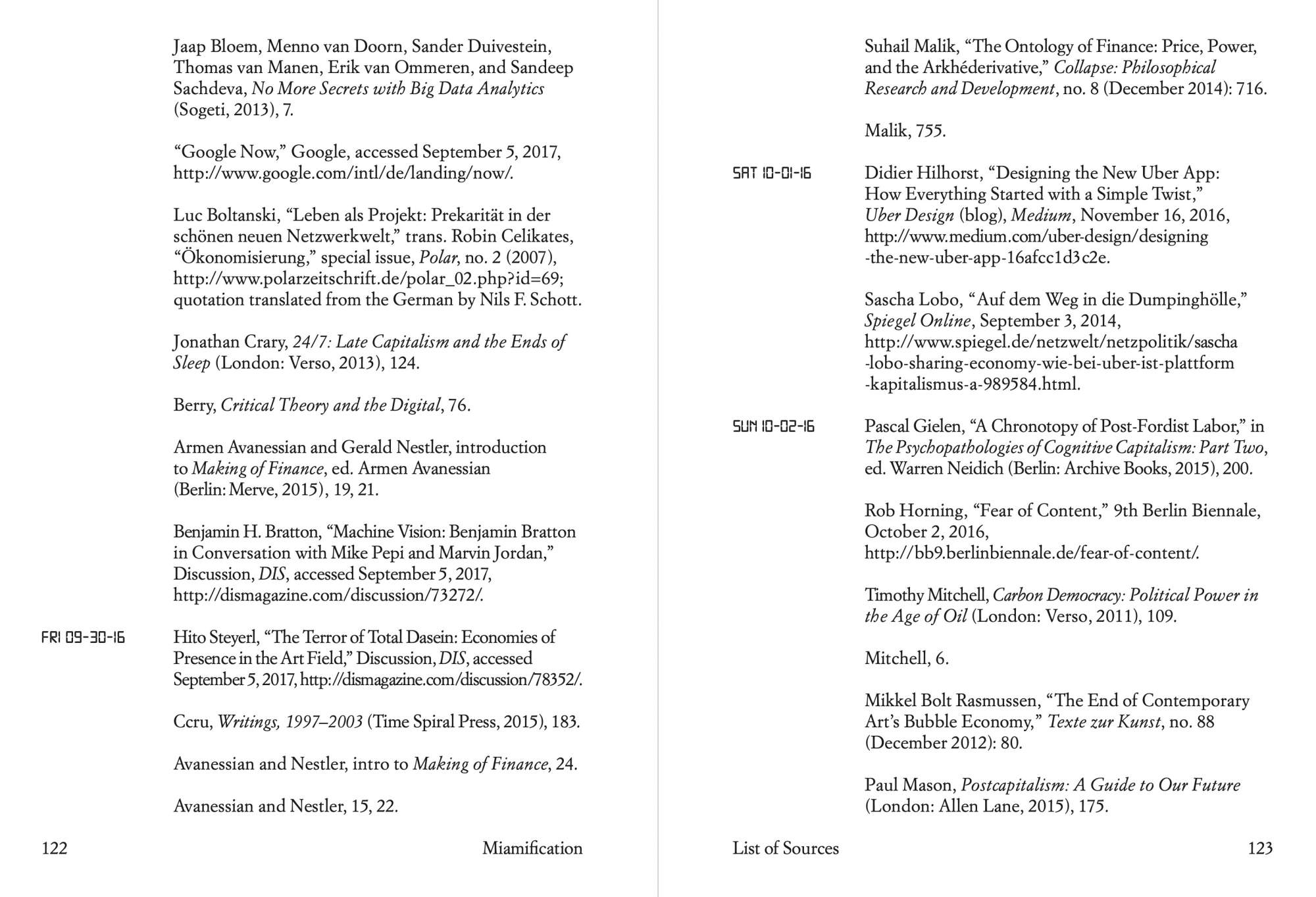
A philosophical-autobiographical laboratory, this book tests ways of thinking and writing beyond run-of-the-mill academic talk. Avanessian doesn’t visit the library; he flies to Miami and goes swimming. Moving between the beach and his desk, he pens seventeen philosophical diary entries in which the hot topics of the day are tackled associatively and with tremendous precision: Trump, big data, capitalism, surveillance, immigration, Facebook, Twitter, etc.
Spike
Avanessian’s reflections, somewhere between diary and soliloquy, essay and travelogue, always take their starting point from the concrete, the phenomenological—for example, the flickering screens in the airplane cabin or the social networks that are first to appear on your computer screen in the morning. Digital profiles and algorithms raise one of the book’s defining themes on the first day: our temporality. In the ‘geological science fiction’ of Miami, the time complex finds its place.
Der Freitag
Avanessian has coined the time-philosophical metaphor of a future that is now ‘from the future.’ Not only preemptive personalization, but also preemptive policing, preemptive war as well as the war on terror, and the preemptive operations of the financial markets shape our future by anticipating it. And not only has the future largely fallen into the hands of reactionary political agendas and particular economic interests, but as the recursive and poetic character of these players’ actions is passed off as the prognosis of a predestined future, our consciousness is clouded against a real existing future openness. The future has been ‘automated’ and thus distorted.
The political impulse of Miamification is to insist again and again on the recursive and poetic character of the future; to wrest ourselves of the present deterioration of twitter trances and live logs; and to take up the fight for the future in the future, that is, in the mode of preemption.
Textem